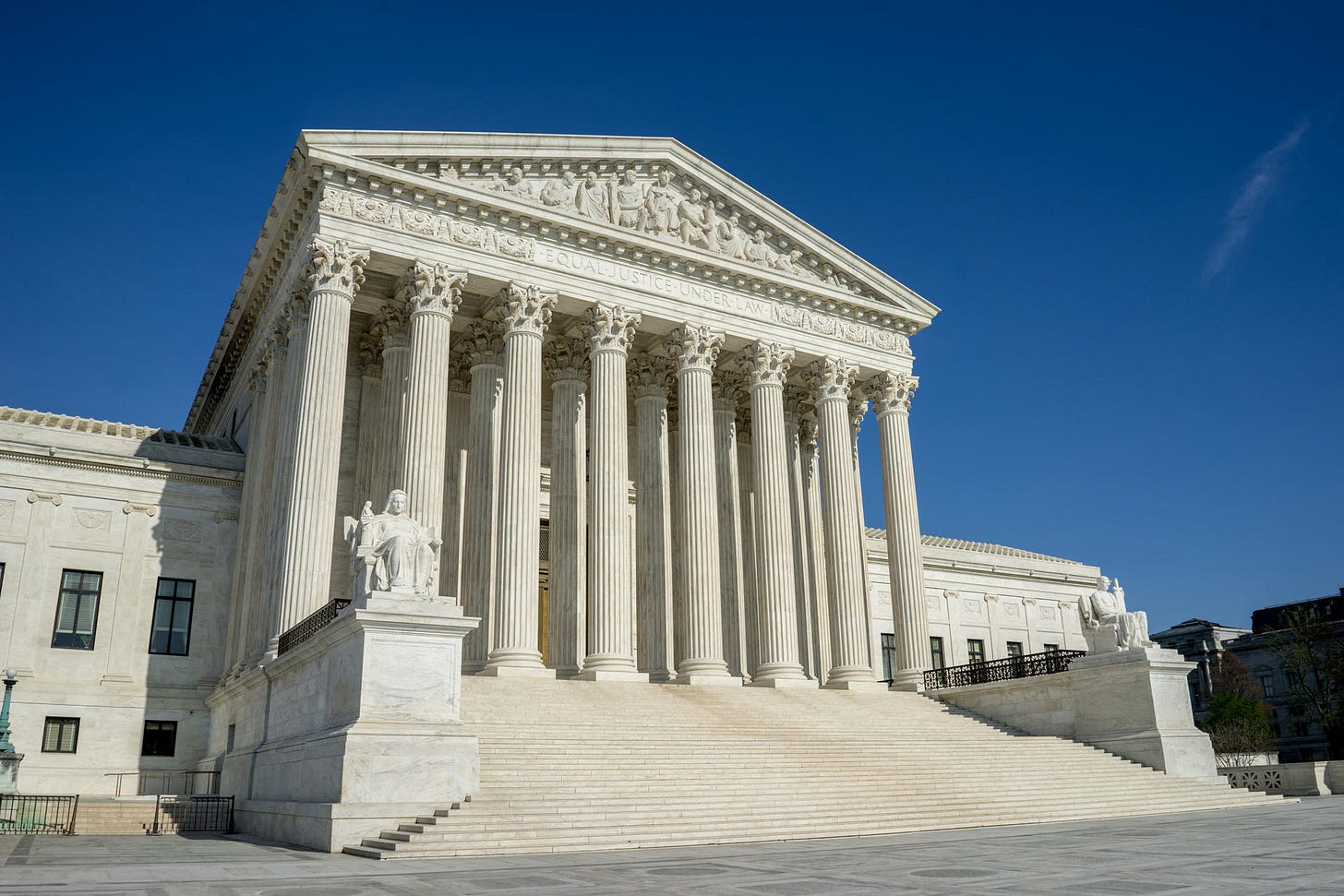Recently, Justice Sotomayor made a great case for keeping “woke” leftist political indoctrination out of public schools. Well, not exactly. She made a case for keeping religion out of government schools. But people who oppose political indoctrination in schools will find that her arguments apply just as well to their cause.
I recommend reading the official decisions for Supreme Court cases in the news. They are surprisingly approachable for the legal layman — it’s not significantly harder than reading arguments on the Internet. And if you do, I’m sure somewhere out there a Civics teacher will smile for no reason at all.
In her dissent in Kennedy v. Bremerton School District, Justice Sotomayor underscores the special importance of the government remaining neutral towards religion in education. She begins:
First, government neutrality toward religion is particularly important in the public school context given the role public schools play in our society. “‘The public school is at once the symbol of our democracy and the most pervasive means for promoting our common destiny,’” meaning that “ ‘[i]n no activity of the State is it more vital to keep out divisive forces than in its schools.’ ” Id. at 584.
She continues:
Families “entrust public schools with the education of their children . . . on the understanding that the classroom will not purposely be used to advance religious views that may conflict with the private beliefs of the student and his or her family.”
And this last paragraph is the most powerful bit:
The State “exerts great authority and coercive power” in schools as a general matter “through mandatory attendance requirements.” Edwards, 482 U. S., at 584. Moreover, the State exercises that great authority over children, who are uniquely susceptible to “subtle coercive pressure.” Lee, 505 U. S., at 588; cf. Town of Greece v. Galloway, 572 U. S. 565, 590 (2014) (“Mature adults,” unlike children, may not be “‘readily susceptible to religious indoctrination or peer pressure’”). Children are particularly vulnerable to coercion because of their “emulation of teachers as role models” and “susceptibility to peer pressure.” Edwards, 482 U. S., at 584. Accordingly, this Court has emphasized that “the State may not, consistent with the Establishment Clause, place primary and secondary school children” in the dilemma of choosing between “participating, with all that implies, or protesting” a religious exercise in a public school. Lee, 505 U. S., at 593.
To summarize, the following reasons are given for keeping religion out of schools:
Schools are a tool for promoting our country’s “common destiny”, which I infer is the opposite of supporting the interests of one faction over another
The state should not educate children against the private beliefs of their families
Children are particularly vulnerable to coercive influence, given mandatory attendance and their young age
The principle called “the Separation of Church and State” was invented following a period of bloody religious wars that rocked Europe. The writers of the American Constitution learned from this experience. In order to accommodate a country of many religions, they installed barriers to using public institutions to spread private religious beliefs.
But this foundational principle of democracy no longer functions correctly in a secular age. In the past, the factions in the Culture War were religious. Now there is equally as much animosity between factions, but they are no longer defined by religious differences.
The magic line between religion and non-religion is the all-important difference in our current system of rules. You can even argue that the rise in prominence of non-religious political movements (“unreligions”?) has been caused by the rules we have — a kind of natural selection. If unreligions can seize state power and use it to distribute resources to their followers but religions cannot, then we will see more unreligions and fewer religions. And our protections against culture wars turning into real wars no longer work.
The activism of conservative parents around the ideological content of the school system has been purely defensive — opposing the growth of a left-wing program including LGBTQ+ Pride celebrations, queer gender theory, and leftist race theories. Some Conservatives might fantasize about going on the offensive, but they know if they tried to push a traditional Christian curriculum in schools it would be shut down by a court within 48 hours. Training children in conservative worldviews are clearly illegal, because they involve religion.
The idea that political ideologies are strangely religion-like, without being technically considered religions by the state, is not new to me (see Shellenberger in 2021 or Moldbug in 2007).
Justice Sotomayor’s objections apply equally well to religions and unreligions. For pluralist Democracy to survive, its foundational principles need to be updated to match current reality. Otherwise, we may have the sorrow to discover what religious war looks like in a secular age.





An excellent piece that was written eloquently. I thought this captured the dilemma well:
‘But this foundational principle of democracy no longer functions correctly in a secular age. In the past, the factions in the Culture War were religious. Now there is equally as much animosity between factions, but they are no longer defined by religious differences. / The magic line between religion and non-religion is the all-important difference in our current system of rules…’
Outstanding work!
Great piece.
"If unreligions can seize state power and use it to distribute resources to their followers but religions cannot, then we will see more unreligions and fewer religions."